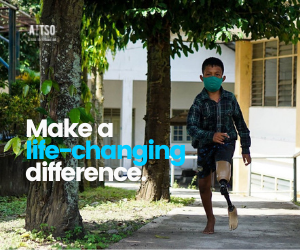How the Venture Capital Market Is Tackling the Mental Health Crisis by Helping People Manage the Cost-of-Living Crisis
As we find ourselves at the beginning of a cost-of-living crisis with financial pressure ramping up on households, the existing mental health crisis in the UK is at risk of worsening. Wages are struggling to keep up with inflation and the cost of living is ever-increasing. This is causing significant stress and affecting mental and physical health. According to the recent State of Financial Wellbeing research carried out by Wagestream, 70% of UK employees are worrying more about money and 76% of these individuals also report worse mental health as a result. For most, this is a frequent challenge, with 28% of employees worrying about money daily. This is also a growing challenge with those reporting difficulties increasing 30% compared to twelve months earlier.
Impact startups helping people improve their financial situation
In response to these challenges, there are several examples of emerging technology companies that are looking to help people better manage their financial situation. One of the benefits associated with this is reduced financial stress and improved wellbeing.
One example is the pending B-Corp, Ophelos, backed by impact-minded investors including Connect Ventures. This platform leverages technology to help users ‘resolve your debts, your way’. By taking advantage of digitisation, automation, and machine learning; the company can help borrowers at risk of default to create a tailored repayment package, thereby increasing the likelihood of successful repayment. This isn’t just about finances. According to Ophelos’ impact objectives, one of their core goals is to ‘improve mental and physical wellbeing’ recognising that financial health is linked to mental and physical health. They also have a number of articles on healthier spending habits, exploring the link between spending and happiness and tips to fight stigmas around debt.
Another example is StepLadder, incubated at impact venture builder Zinc and further supported by impact investors like Anthemis. StepLadder is looking to ‘make a lasting positive social impact’ through leveraging technology to help people come together to save towards financial goals through ‘lending circles’ (formally referred to as Rotating Credit and Savings Associations or ROSCAs). In short, members join a circle for a fixed number of months and commit to contributing a fixed amount each month. Then, once a month, the lump sum of members contributions is randomly allocated to an individual member. This way, 90% of circle members reach their financial goals sooner and can avoid unfriendly interest rates on short term loans or expensive fees on products designed for lower income households. To date, StepLadder has helped over 2,000 users raise over one million pounds towards property deposits, reduce their debt or improving their credit score to get a better mortgage. In a world where buying a home is looking ever more unlikely and risky, having more options on the table is a positive thing.
A final example is Wagestream, backed by impact-minded investors including Ascension Ventures and Balderton. They are on a mission to create ‘financial wellbeing for every frontline worker’, by providing fairer banking services subsidised by employers. Workers use its app to manage their budgeting, chat to money coaches, start saving, choose when they get paid, and get fairer deals on household bills and financial products. A recent evaluation by Wagestream showed that the majority of users feel that EWA has had a positive impact on their finances and wellbeing. More than three quarters (77%) of people say they feel less stressed once they have access, and 72% report having a better quality of live with it. With companies like Bupa, Next and Pizza Express now offering it to more than two million workers, it is helping to make a big dent in the challenges associated with the cost-of-living crisis.
Final thoughts
Entrepreneurs are increasingly wanting to solve the biggest and most painful problems in society. When that intent is combined with technology and mission aligned investors, startups can solve social problems at huge scale given the size of these issues. This helps to create meaningful impact for society but also deliver the returns that investors need to continue to invest in social impact.
We know impact can be a source of value for startups and investors, and the combination of an existing mental health crisis and an emerging cost-of-living crisis, means there has never been a more crucial point for the venture ecosystem to invest their capital, ideas and expertise in this space.
**********
Nick Andreou is Associate Venture Impact Partner at Big Society Capital
***
The views expressed in this article are those of the author and do not necessarily reflect the views of AlphaWeek or its publisher, The Sortino Group
© The Sortino Group Ltd
All Rights Reserved. No part of this publication may be reproduced, stored in a retrieval system or transmitted in any form or by any means, electronic, mechanical, photocopying, recording or scanning or otherwise, except under the terms of the Copyright, Designs and Patents Act 1988 or under the terms of a licence issued by the Copyright Licensing Agency or other Reprographic Rights Organisation, without the written permission of the publisher. For more information about reprints from AlphaWeek, click here.







